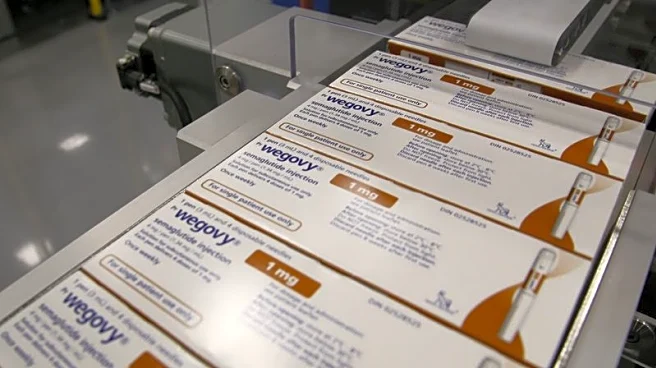What is the story about?
What's Happening?
King & Spalding, a prominent law firm, has issued a memo to its associates requiring them to log 2,400 'productive hours' annually. This announcement has surprised some in the legal community, but according to Jessica Chin Somers, a former Big Law attorney and current managing director at Kinney Recruiting, this requirement is not unusual. Somers explains that the expectation for lawyers to exceed billable hours quotas by including non-billable work is a longstanding, albeit unwritten, rule in the legal industry. The memo formalizes this expectation, highlighting the importance of non-billable activities for career advancement.
Why It's Important?
The formalization of the 2,400-hour requirement at King & Spalding sheds light on the demanding nature of legal careers, particularly in large law firms. This move may influence other firms to adopt similar policies, potentially increasing the pressure on associates to balance billable and non-billable work. The policy underscores the competitive environment in the legal industry, where career progression often depends on exceeding standard expectations. It also raises questions about work-life balance and the sustainability of such high demands on legal professionals.
Beyond the Headlines
The introduction of a formalized hour requirement may prompt discussions about the mental health and well-being of legal professionals. As firms continue to demand high productivity, there may be increased scrutiny on the impact of such policies on employee satisfaction and retention. The legal industry may need to address these concerns to attract and retain top talent, potentially leading to broader conversations about work culture and expectations.
















